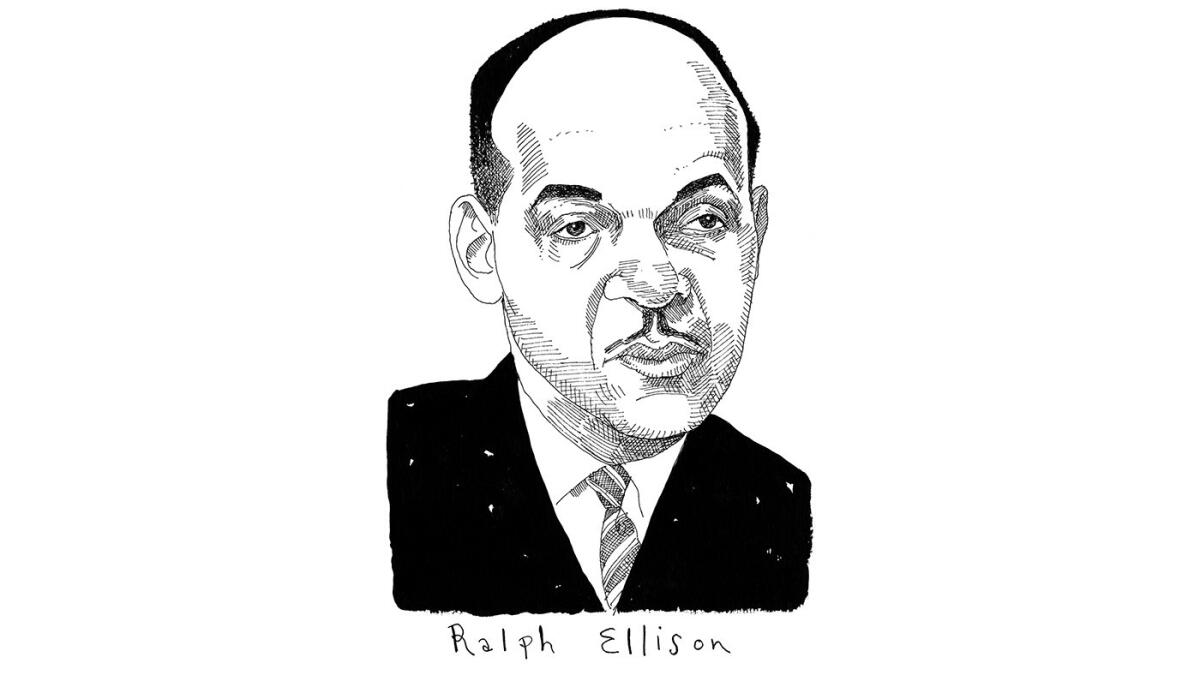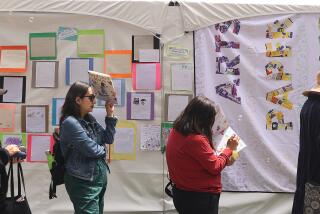Literary Idol: Bryan Stevenson on Ralph Ellison

Literature is a lonely art, but writers keep company with the heroes on their bookshelves. We asked five Festival of Books participants to pay tribute to authors who inspired them.
I began my education in a racially segregated community where black children went to a small, weather-beaten “colored school.” Lawyers forced public schools to admit black children just after I began elementary school (an effort a decade earlier had failed; angry protests by white families simmered and festered until outrage about race-mixing halted integration) and by the time my middle school years arrived, black and white students had settled into a comparatively comfortable tolerance of one another. Black people continued to live in racially segregated neighborhoods, however, still occupying what felt like the margins of society.
It was during this time of change that, as a 15-year-old high school sophomore, I read Ralph Ellison’s “Invisible Man”:
“I am an invisible man. No, I am not a spook like those who haunted Edgar Allan Poe; nor am I one of your Hollywood movie ectoplasms. I am a man of substance, of flesh and bone, fiber and liquids — and I might even be said to possess a mind.”
FULL COVERAGE: FESTIVAL OF BOOKS
Ellison’s nameless narrator haunted me because it spoke to a social reality that I could understand and to which I could bear witness. But the book did more than descriptively investigate the political and social landscape of race in America, it provoked me to see myself through a profoundly different lens. “Invisible Man” awakened an awareness about the power of narrative that I hadn’t fully discovered before. It didn’t necessarily make me want to be a writer, but it did make me understand in a new way the power of writing.
After Ellison, I made different choices about how I engaged the racially integrated environment of high school. I made different choices about the roles I maintained in the racially segregated environment outside of high school. I no longer wanted to be silent or indifferent or powerless.
It was an unfamiliar response to literature, but the power of the book’s insights was too overwhelming for me to ignore: “It is sometimes advantageous to be unseen, although it is most often rather wearing on the nerves.”
Finding something personal and revelatory in literature changed the way I read. It made me search out narratives more earnestly and eagerly. It would be years later — as a college sophomore reading Dostoyevsky’s “The Brothers Karamazov” — before I found anything as influential. I still search for books that have that power: Toni Morrison’s “Beloved,” Marilynne Robinson’s “Gilead” or Taylor Branch’s trilogy about the civil rights movement. But after “Invisible Man,” I knew it existed; this place where words, narrative and language can get you close to truth and the powers that truth can activate.
Ellison taught me that sometimes a book can disrupt the relationship you have to the world around you and force you to demand more, seek more, expect more, experience more that is essential and important to what truly matters.
“So, why do I write, torturing myself to put it down? Because in spite of myself I’ve learned some things,” Ellison wrote. “Without the possibility of action, all knowledge comes to one labeled ‘file and forget,’ and I can neither file nor forget. Nor will certain ideas forget me; they keep filing away at my lethargy, my complacency.”
Stevenson will appear at the Festival of Books on April 19. He is the executive director of the Equal Justice Initiative in Montgomery, Ala., a professor of law at the New York University School of Law and the author of “Just Mercy: A Story of Justice and Redemption.”
MORE FROM FESTIVAL OF BOOKS:
Times’ celebration of the written word opens its 20th chapter
Photos: Los Angeles Times Festival of Books: A look back
Interactive game: How to be a writer
More to Read
Sign up for our Book Club newsletter
Get the latest news, events and more from the Los Angeles Times Book Club, and help us get L.A. reading and talking.
You may occasionally receive promotional content from the Los Angeles Times.






